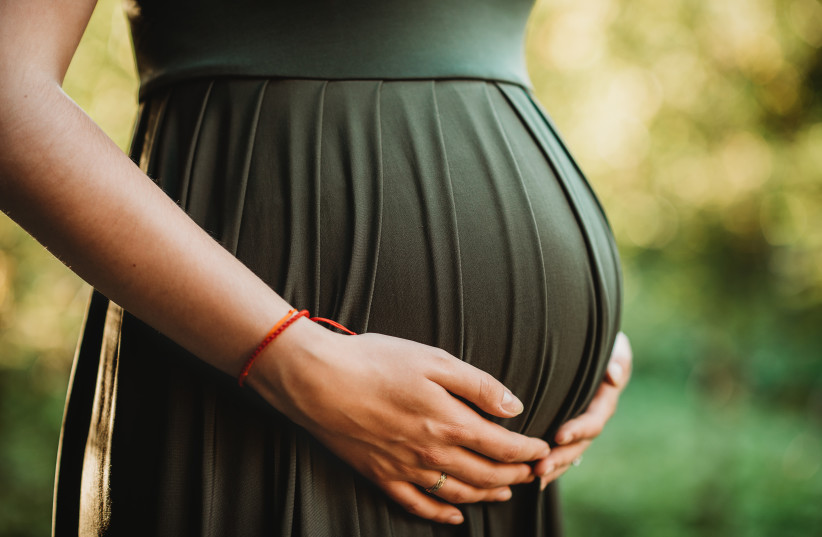The postpartum period after birth is marked by isolation. Spouses return to work, friends and family work during the day and new mothers often find themselves alone at home with the baby for long hours. Postpartum isolation is merely another difficult phenomenon of transitioning to motherhood.
Women dream of coffee with girlfriends, walking around the mall, in-depth conversations with other moms at the park and play dates with new girlfriends from also raising their first kids. The reality? Most mothers find themselves in one long and continuous day In which the routine is repeated every few hours like Sisyphus, with immense difficulty getting out of the house, and the quiet - hours of quiet besides the crying of the baby or you. It's just you and a baby and four walls. Isolation.
Vered Garnai, a postpartum doula, accompanies women postpartum and in adapting to motherhood, facilitates postpartum women's circles and is the director of the Habakkini (hugs) mothers' club; she says that many new mothers feel that "no one understands.”
Attempts to share experiences with the mother or mother-in-law who grew up and also raised children in a completely different generation are met with dismissive responses such as "You have a healthy child, you need to be happy." They don’t always have real experience (or ability) to listen, to contain, to bear the difficulty.
Even our other half, the spouse, who hasn’t experienced the transition to parenting on the physical level and returned to his daily routine long ago, often has a hard time understanding your feelings and empathizing with the tremendous upheaval you are going through.

Adaptation difficulties for mothers are also not represented in the media or culture. We learn about the functioning of postpartum mothers from commercials for diapers where new mothers look "sweetened", well-groomed and always breastfeed comfortably. There is no hint of abysmal fatigue, crying, sadness, guilt or disappointment. And what you don’t see it’s as if it doesn’t exist. If they don’t have these feelings but you do, what does it actually say about you?
Because society silences the voices about the emotional difficulty and the real reality of life after giving birth, any expression of postpartum distress is considered marginal and makes women feel that something is "wrong", even when it is a prevalent phenomenon, natural and common.
Many new mothers find themselves in a vicious cycle of guilt and blame or self-flagellation because they don’t function, look or feel like the mothers they are in the media, without knowing that what they are feeling is completely natural to feel as they adapt to motherhood.
In addition, Israel is a country that cultivates a national narrative of encouraging childbirth in the name of mobilizing for a national effort.
Fertility treatments are funded by the state, hospitals are rewarded for every mother who chooses to give birth in them and in general "children are happy" but after you "enlisted in the national effort" and gave birth, you are left to yourself to cope.
The state, for its part, doesn’t help mothers cope or educate them and doesn’t provide the proper support, physical and economic, to cope with the entry into motherhood. It seems that all the conditions work to the detriment of new mothers, and under such conditions, the loneliness only deepens as time goes on.
<br>What can be done?
The natural tendency of new mothers is to look for their equals, women who are at the same stage as their own: new mothers making their first steps into motherhood, those who share with them the same concerns, challenges and feelings. And not in vain. In their natural intuition, they feel they’re the only ones who can understand them, identify and empathize without judging, simply because they’re going through the exact same thing.
Quite a few local associations of women after childbirth can be found, both in mother-infant circles and in spontaneous women's circles, which aim to give women after childbirth a place to express and unload everything they feel in a supportive and safe environment.
<br>You’re not alone
Most postpartum mothers are in the same boat. They feel alone in their feelings until they meet mothers just like them who give them the confirmation that they’re "okay." Only when you meet them will you discover how wide the community is, that conversation topics are similar and you can really feel that you’re in good company.
Even if you don’t feel comfortable, are tired or just afraid to leave the house with the baby don’t give up on these friendships during maternity leave. It will bring depth, content and partnership into your daily life, something you absolutely need.
This article was written up in partnership with the JAMA parenting app.
